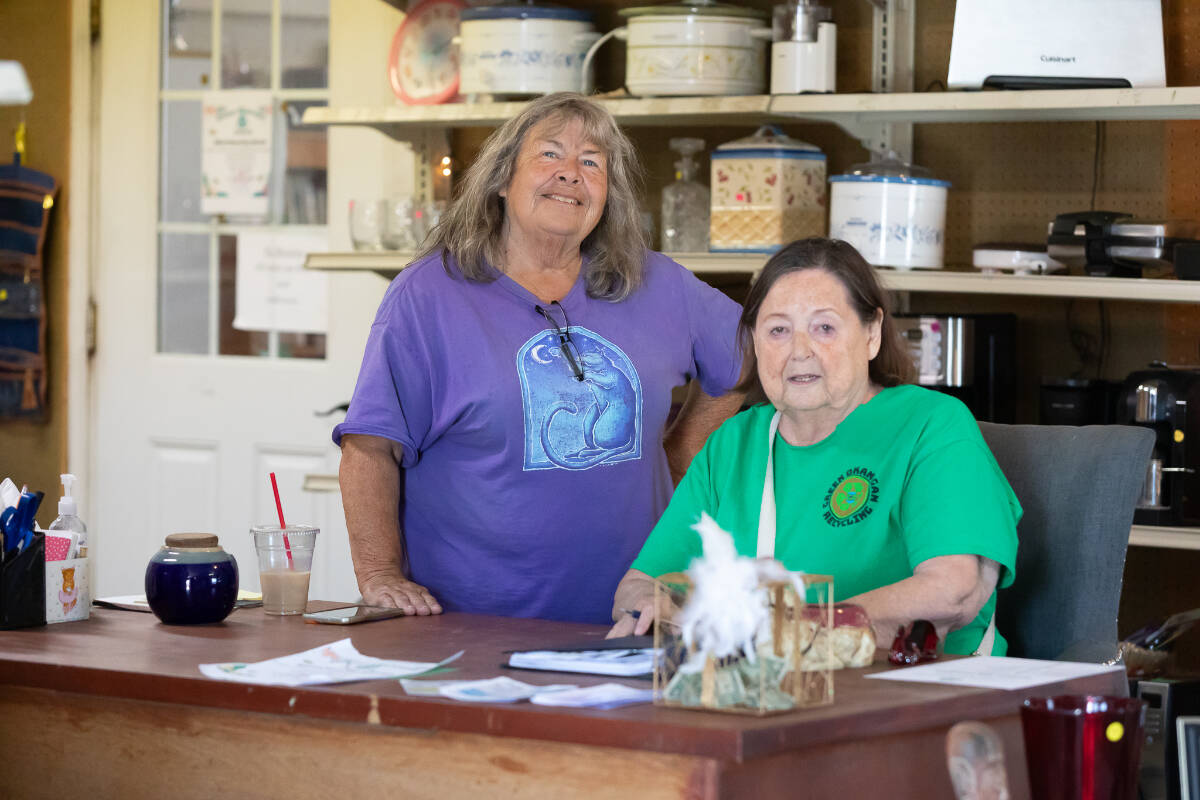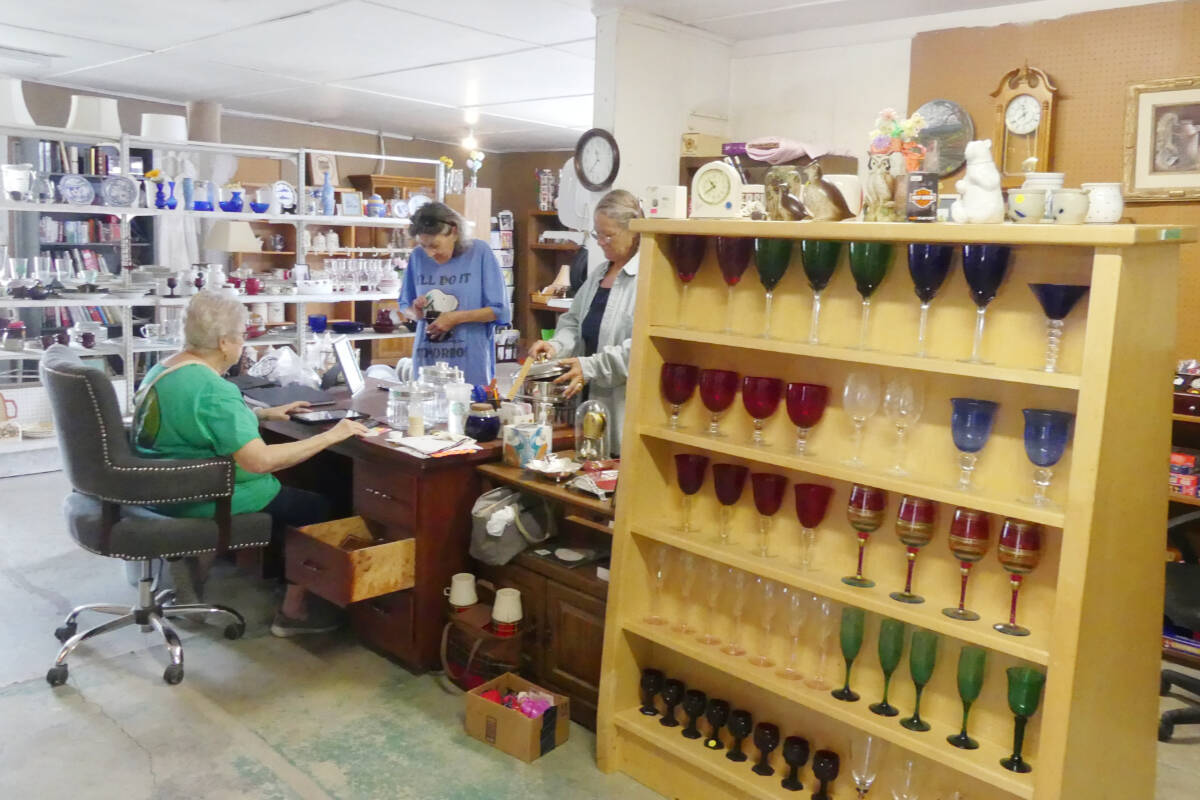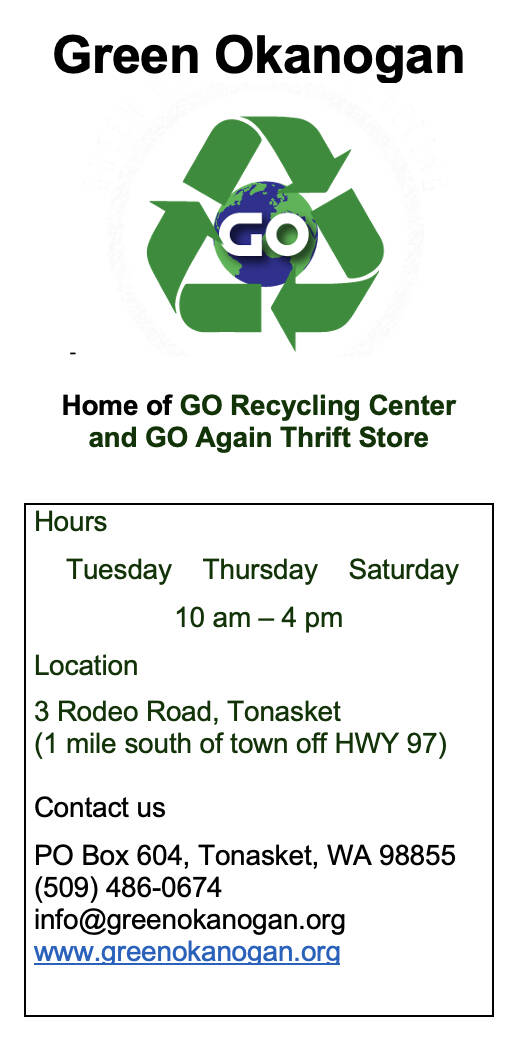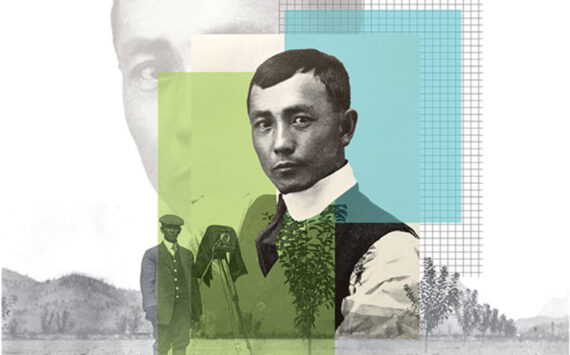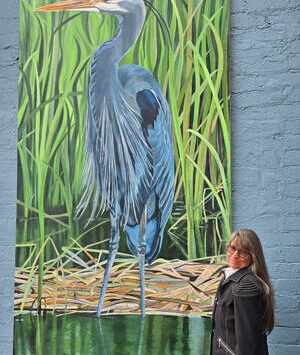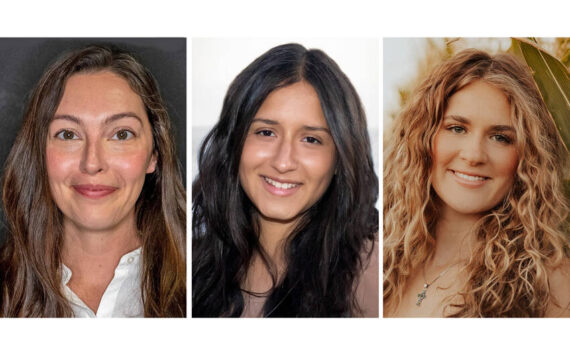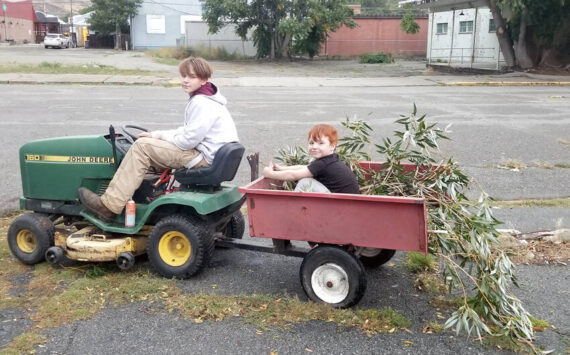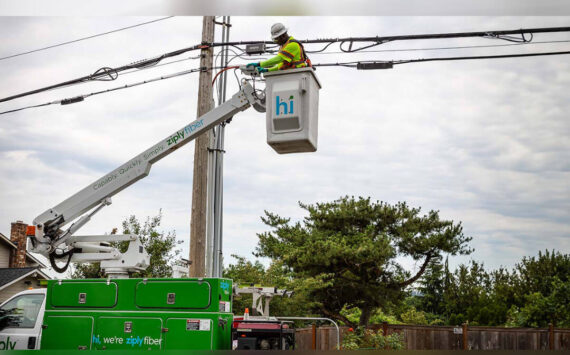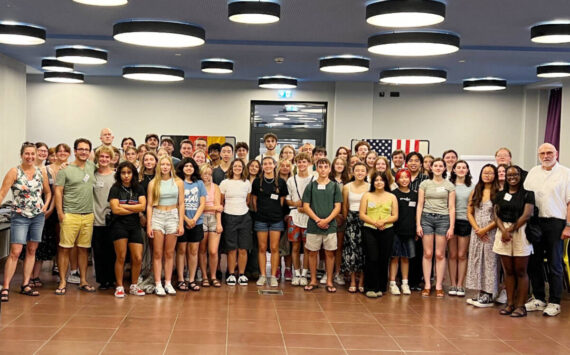If you want to support Okanogan Valley green initiatives but are unclear about what and where to recycle, one local team is committed to making it easy!
Green Okanogan is dedicated to promoting recycling education and sustainability while providing vital recycling services to the North Central Washington community. Located at 3 Rodeo Rd., just south of Tonasket, the heart of their operations lies in the GO Recycling Center and GO Again Thrift Store.
At the GO Recycling Center, a dedicated team, largely composed of volunteers, operates Tuesdays, Thursdays and Saturdays from 10 a.m. to 4 p.m. They diligently collect recyclables, which are then processed, compressed into bales, then shipped to markets across the state.
At present, accepted materials include cardboard, mixed paper, aluminum cans, tin cans, PETE plastics (No. 1), HDPE plastics (No. 2), E-Cycle electronics and textiles. Though recycling at GO remains free of charge, donations and/or GO memberships are greatly appreciated.
At the center, GO volunteers help visitors sort items into designated receptacles, guiding them through the process to ensure proper recycling practices.
These frontline workers devote significant time to educating patrons on the do’s and don’ts of recycling at GO, ensuring that received items are suitable for processing. For example:
- DO include clean, dry, flattened corrugated cardboard,
- DO include all kinds of clean and dry mixed paper
- DO include rinsed aluminum cans and tin cans with or without labels,
- DO include No. 1 plastic beverage containers and No. 2 plastic milk and vinegar jugs – all plastics with caps off
- and DO bring E-Cycle electronics such as televisions, computers and e-readers
- DON’T include: dirty, wet, food-stained or greasy cardboard; aluminum foil; opaque plastic such as detergent bottles, and any plastic container without a number 1 or 2 in the chasing arrow logo on the bottom.
- DON’T include peripherals like printers, keyboards and cables.
While it may appear meticulous, Operations Manager Phil Christy emphasizes the importance of only collecting clean and dry recyclables that GO has identified a market for. “Anything else ultimately ends up in our dumpster, contradicting our mission to minimize landfill waste,” Christy notes.
GO also accepts donations of gently used, clean, and dry clothing, shoes, purses, hats, belts, bedding, towels, linens and stuffed animals. These donations are collected and sorted by a textile recycler, ensuring each item is directed to its best-use destination.
Go Again for the circular economy
Recycling isn’t the only way to reduce waste going to the landfill. In tandem with recycling efforts, the GO Again Thrift Store plays a pivotal role in the circular economy by offering pre-loved items a second lease on life. The store, whose profits are integral to funding GO’s operational costs, provides ample opportunities for sustainable shopping, with an indoor sales area showcasing finer goods, and an outdoor annex with furniture and various other items.
Donations, including clean and working kitchen appliances, furniture, building materials and electronics, are accepted, subject to assessment by GO volunteers. While upholstered furniture, mattresses, ceiling fans, vacuums, microwaves and certain electronics are not accepted, the emphasis remains on items deemed resale-worthy.
To date, Green Okanogan has processed 2.5 million pounds of recyclables and redistributed a significant volume of materials through their thrift store. They take pride in their contributions to the burgeoning circular economy and remain committed to evolving with future developments in recycling and reuse initiatives.
Learn more at GreenOkanogan.org and follow them on Facebook for the latest news.
This material is funded through a Public Participation Grant from the Washington Department of Ecology. Ecology reviewed the content for grant continuity but does not necessarily endorse it.
